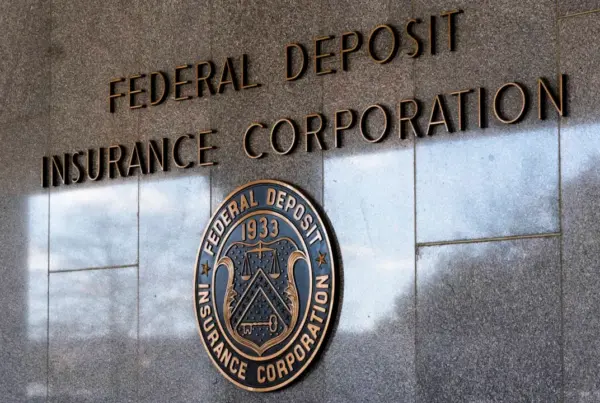“`html
FDIC’s Proposed Rule on Brokered Deposits: Key Insights for Financial Institutions
Introduction
On August 23, 2024, the Federal Deposit Insurance Corporation (FDIC) proposed significant amendments to its regulations concerning brokered deposits, aiming to enhance the stability of the banking sector. This proposal is a response to evolving market dynamics and the increasing role of technology in financial services. The proposed rule seeks to clarify and expand the definition of “deposit broker” and address concerns regarding the systemic risks associated with certain deposit-taking activities. These changes are intended to mitigate risks posed by non-traditional deposit brokers, in light of recent financial instabilities.
Key Regulatory Changes & Analysis
1. Expansion of the Definition of Deposit Broker
The proposed rule broadens the definition of a “deposit broker” to include entities facilitating the placement of deposits through third-party arrangements. Previously, this definition was limited to traditional brokers who directly placed deposits with banks. Now, it encompasses a wider range of entities, including fintech companies and online platforms that aggregate deposits. This change recognizes the pervasive role of technology in modern banking.
2. Clarification of Exemptions
The FDIC intends to clarify which entities may qualify for exemptions from the deposit broker designation. Currently, specific institutions, such as banks and credit unions, enjoy exemptions under certain conditions. The proposed changes seek to refine these exemptions, which could significantly impact how institutions engage in deposit placement activities, thus requiring careful scrutiny by financial institutions.
3. Regulatory Reporting Requirements
The proposed amendments introduce enhanced reporting obligations for deposit brokers. These new requirements mandate entities classified as deposit brokers to submit detailed reports to the FDIC, covering deposit placement activities and associated risks. This is expected to necessitate significant operational adjustments for affected institutions to ensure timely and accurate reporting, aligning with heightened regulatory expectations.
4. Increased Scrutiny of Deposit Broker Activities
The FDIC aims to implement a more rigorous supervisory framework for deposit brokers. Enhanced oversight will involve increasing the examination and monitoring of deposit brokers to assess compliance with the new regulations. Non-compliance may result in enforcement actions, such as fines and restrictions on deposit-taking activities, emphasizing the importance of adherence to regulatory standards.
Legal and Industry Implications
The proposed rule presents several compliance burdens and operational challenges for financial institutions. Increased compliance costs are anticipated as institutions align operations with new requirements. Legal risks might arise if institutions contest their designation as deposit brokers. Furthermore, recent enforcement trends in the financial services industry highlight the urgency of proactive compliance measures.
Recommended Actions & Compliance Strategies
To prepare for the proposed regulatory changes, financial institutions and affected parties should consider the following steps:
- Review Internal Policies: Conduct a comprehensive review of existing deposit placement practices to identify potential classifications as deposit brokers.
- Update Compliance Programs: Enhance compliance frameworks to accommodate new reporting requirements and operational changes.
- Monitor Deadlines: Stay informed about the timeline for final rule implementation and any public comment periods. The FDIC is expected to finalize the rule by [insert expected date].
- Engage in Public Comment: Consider submitting comments during the public comment period to express concerns or support regarding specific aspects of the proposed rule.
Conclusion & Next Steps
The FDIC’s proposed rule on brokered deposits represents a significant shift in regulatory oversight, aiming to bolster the stability of the banking sector amidst evolving market conditions. Financial institutions must prepare for the potential implications of these changes, including increased compliance costs and operational adjustments.
The timeline for implementation remains uncertain, and stakeholders should remain vigilant for further regulatory developments. Given the contentious nature of these changes, potential legal or legislative challenges may arise, influencing the final form of the regulation and its enforcement. By proactively addressing these regulatory updates, financial institutions can mitigate risks and ensure compliance with the evolving landscape of FDIC regulations.
“`


